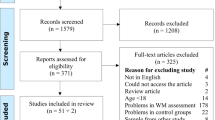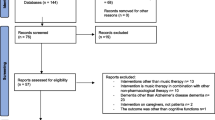Abstract
Visuoexecutive impairment is common among acute ischemic stroke patients. This study aimed to examine the ability of the Montreal Cognitive Assessment (MoCA) and Mini-Mental State Examination (MMSE) visuoexecutive subtests to detect visuoexecutive abnormality in acute ischemic stroke patients and to identify the predictors for their impairments. 336 patients who completed the MMSE and MoCA were enrolled in this study. We compared the proportion of participants with incorrect MoCA visuoexecutive tasks and MMSE pentagon copying. Multivariate logistic regression analysis was used to evaluate the associations between the visuoexecutive dysfunction and demographic and clinical characteristics in the samples. Among all the participants, the MoCA detected more visuoexecutive dysfunction than the MMSE (88.69% vs. 45.83%, respectively; p < 0.001). The predictors identified by the univariate analysis included the factors of gender, age, educational level, smoking, alcohol consumption, Oxfordshire Community Stroke Project (OCSP), previous strokes, initial NIHSS score and number of old lacunar infarctions, while from the multivariate logistic regression analysis, the factors of age, educational level, NIHSS score, previous strokes and number of old lacunar infarctions served as predictive factors for the visuoexecutive impairment in acute stroke patients. In conclusion, visuoexecutive impairment is associated with the factors of the educational level, stroke severity, stroke history and number of old lacunar infarctions. Our findings may guide the clinicians to intervene the risks for the patients at an early stage after stroke and form the basis for good rehabilitation plans.

Similar content being viewed by others
References
Blackburn DJ, Bafadhel L, Randall M et al (2013) Cognitive screening in the acute stroke setting. Age Ageing 42(1):113–116. https://doi.org/10.1093/ageing/afs116
Cova I, Mele F, Zerini F et al (2020) Neuropsychological screening in the acute phase of cerebrovascular diseases. Acta Neurol Scand. https://doi.org/10.1111/ane.13319
Kringle EA, Terhorst L, Butters MA et al (2018) Clinical predictors of engagement in inpatient rehabilitation among stroke survivors with cognitive deficits: an exploratory study. J Int Neuropsychol Soc 24(6):572–583. https://doi.org/10.1017/S1355617718000085
Toglia J, Fitzgerald KA, O'Dell MW et al (2011) The mini-mental state examination and montreal cognitive assessment in persons with mild subacute stroke: relationship to functional outcome. Arch Phys Med Rehabil 92(5):792–798. https://doi.org/10.1016/j.apmr.2010.12.034
Mai LM, Sposato LA, Rothwell PM et al (2016) A comparison between the MoCA and the MMSE visuoexecutive sub-tests in detecting abnormalities in TIA/stroke patients. Int J Stroke 11(4):420–424. https://doi.org/10.1177/1747493016632238
Fu C, Jin X, Chen B et al (2017) Comparison of the mini-mental state examination and montreal cognitive assessment executive subtests in detecting post-stroke cognitive impairment. Geriatr Gerontol Int 17(12):2329–2335. https://doi.org/10.1111/ggi.13069
Suda S, Muraga K, Ishiwata A et al (2020) Early cognitive assessment following acute stroke: feasibility and comparison between mini-mental state examination and montreal cognitive assessment. J Stroke Cerebrovasc Dis 29(4):104688. https://doi.org/10.1016/j.jstrokecerebrovasdis.2020.104688
Federico A, Maier A, Vianello G et al (2015) Screening for mild cognitive impairment in Parkinson’s disease: comparison of the italian versions of three neuropsychological tests. Parkinsons Dis 2015:681976. https://doi.org/10.1155/2015/681976
Ojala-Oksala J, Jokinen H, Kopsi V et al (2012) Educational history is an independent predictor of cognitive deficits and long-term survival in postacute patients with mild to moderate ischemic stroke. Stroke 43(11):2931–2935. https://doi.org/10.1161/STROKEAHA.112.667618
Kwon HS, Lee D, Lee MH et al (2019) Post-stroke cognitive impairment as an independent predictor of ischemic stroke recurrence: PICASSO sub-study. J Neurol 267(3):688–693. https://doi.org/10.1007/s00415-019-09630-4
Yaghi S, Cotsonis G, de Havenon A et al (2020) Poststroke montreal cognitive assessment and recurrent stroke in patients with symptomatic intracranial atherosclerosis. J Stroke Cerebrovasc Dis 29(4):104663. https://doi.org/10.1016/j.jstrokecerebrovasdis.2020.104663
Sagnier S, Catheline G, Dilharreguy B et al (2020) Normal-appearing white matter integrity is a predictor of outcome after ischemic stroke. Stroke 51(2):449–456. https://doi.org/10.1161/STROKEAHA.119.026886
Kim TW, Kim YH, Kim KH et al (2014) White matter hyperintensities and cognitive dysfunction in patients with infratentorial stroke. Ann Rehabil Med 38(5):620–627. https://doi.org/10.5535/arm.2014.38.5.620
Volonghi I, Pendlebury ST, Welch SJ et al (2013) Cognitive outcomes after acute coronary syndrome: a population based comparison with transient ischaemic attack and minor stroke. Heart 99(20):1509–1514. https://doi.org/10.1136/heartjnl-2013-304207
Nishtala A, Preis SR, Beiser A et al (2014) Midlife cardiovascular risk impacts executive function Framingham offspring study. Alzheimer Dis Assoc Disord 28:16–22. https://doi.org/10.1097/WAD.0b013e3182a715bc
Chander RJ, Lim L, Handa S et al (2017) Atrial fibrillation is independently associated with cognitive impairment after ischemic stroke. J Alzheimers Dis 60(3):867–875. https://doi.org/10.3233/JAD-170313
Boidin M, Handfield N, Ribeiro PAB et al (2020) Obese but fit: the benefits of fitness on cognition in obese older adults. Can J Cardiol. https://doi.org/10.1016/j.cjca.2020.01.005
Brookes RL, Hollocks MJ, Khan U et al (2015) The Brief Memory and Executive Test (BMET) for detecting vascular cognitive impairment in small vessel disease: a validation study. BMC Med. https://doi.org/10.1186/s12916-015-0290-y
Park SH, Sohn MK, Jee S et al (2017) The characteristics of cognitive impairment and their effects on functional outcome after inpatient rehabilitation in subacute stroke patients. Ann Rehabil Med 41(5):734–742. https://doi.org/10.5535/arm.2017.41.5.734
Park YH, Jang JW, Park SY et al (2015) Executive function as a strong predictor of recovery from disability in patients with acute stroke: a preliminary study. J Stroke Cerebrovasc Dis 24(3):554–561. https://doi.org/10.1016/j.jstrokecerebrovasdis.2014.09.033
Westerlind E, Abzhandadze T, Rafsten L et al (2019) Very early cognitive screening and return to work after stroke. Top Stroke Rehabil 26(8):602–607. https://doi.org/10.1080/10749357.2019.1645440
Arnett JA, Labovitz SS (1995) Effect of physical layout in performance of the Trail Making Test. Psychol Assess 7:220–221
Rakusa M, Jensterle J, Mlakar J (2018) Clock Drawing Test: a simple scoring system for the accurate screening of cognitive impairment in patients with mild cognitive impairment and dementia. Dement Geriatr Cogn Disord 45(5–6):326–334. https://doi.org/10.1159/000490381
Leissing-Desprez C, Thomas E, Segaux L et al (2020) Understated cognitive impairment assessed with the clock-drawing test in community-dwelling individuals aged >/=50 years. J Am Med Dir Assoc. https://doi.org/10.1016/j.jamda.2020.03.016
Siqueira GSA, Hagemann PMS, Coelho DS et al (2019) Can MoCA and MMSE Be interchangeable cognitive screening tools? A systematic review. Gerontologist 59(6):e743–e763. https://doi.org/10.1093/geront/gny126
Moirand R, Galvao F, Lecompte M et al (2018) Usefulness of the Montreal Cognitive Assessment (MoCA) to monitor cognitive impairments in depressed patients receiving electroconvulsive therapy. Psychiatry Res 259:476–481. https://doi.org/10.1016/j.psychres.2017.11.022
Potocnik J, Ovcar Stante K, Rakusa M (2020) The validity of the Montreal cognitive assessment (MoCA) for the screening of vascular cognitive impairment after ischemic stroke. Acta Neurol Belg 120(3):681–685. https://doi.org/10.1007/s13760-020-01330-5
Seshadri S, Beiser A, Kelly-Hayes M et al (2006) The lifetime risk of stroke: estimates from the Framingham Study. Stroke 37(2):345–350. https://doi.org/10.1161/01.STR.0000199613.38911.b2
Lee AY (2011) Vascular dementia. Chonnam Med J 47(2):66–71. https://doi.org/10.4068/cmj.2011.47.2.66
Suda S, Nishimura T, Ishiwata A et al (2020) Early cognitive impairment after minor stroke: associated factors and functional outcome. J Stroke Cerebrovasc Dis 29(5):104749. https://doi.org/10.1016/j.jstrokecerebrovasdis.2020.104749
Arboix A, Martí-Vilalta J (2009) Lacunar stroke. J Neurol Neurosurg Psychiatry 9(2):179–196. https://doi.org/10.1586/14737175.9.2.179
Arboix A (2011) Lacunar infarct and cognitive decline. Expert Rev Neurother 11(9):1251–1254. https://doi.org/10.1586/ern.11.118
Lorena B-R, Arboix A, Canovas D et al (2013) Cognitive profile in patients with a first-ever lacunar infarct with and without silent lacunes:a comparative study. BMC Neurol 13:203. https://doi.org/10.1186/1471-2377-13-203
Bruno K, Rosser N, Tabeling S et al (2015) Errors on the trail making test are associated with right hemispheric frontal lobe damage in stroke patients. Behav Neurol 2015:309235. https://doi.org/10.1155/2015/309235
Yan T, Yu J-R, Zhang Y-P et al (2015) Analysis on correlation of white matter lesion and lacunar infarction with vascular cognitive impairment. Int J Clin Exp Med 8:14119–14122
He M, Wang JE, Liu N et al (2018) Effects of blood pressure in the early phase of ischemic stroke and stroke subtype on poststroke cognitive impairment. Stroke 49(7):1610–1617. https://doi.org/10.1161/strokeaha.118.020827
Gorska-Ciebiada M, Saryusz-Wolska M, Borkowska A et al (2015) Serum soluble adhesion molecules and markers of systemic inflammation in elderly diabetic patients with mild cognitive impairment and depressive symptoms. Biomed Res Int 2015:826180. https://doi.org/10.1155/2015/826180
Acknowledgements
We wish to thank the staff at the Department of Neurology, Hebei General Hospital and Xing-Xuan Fang of International College, Hebei Medical University for proof reading the article.
Funding
This Research Project is funded by the Clinical Medicine Program for Advanced Talents of Hebei Province (2015) (361003).
Author information
Authors and Affiliations
Corresponding author
Ethics declarations
Conflict of interest
The authors indicate no potential conflicts of interest.
Ethical approval
The study was approved by the Regional Committee for Ethics in Medical Research.
Informed consent
All the patients provided written informed consent before being included.
Additional information
Publisher's Note
Springer Nature remains neutral with regard to jurisdictional claims in published maps and institutional affiliations.
Rights and permissions
About this article
Cite this article
Wang, W., Dong, FM., Shao, K. et al. The montreal cognitive assessment and mini-mental state examination visuoexecutive subtests in acute ischemic stroke patients and their correlations with demographic and clinical factors. Acta Neurol Belg 121, 1707–1714 (2021). https://doi.org/10.1007/s13760-020-01479-z
Received:
Accepted:
Published:
Issue Date:
DOI: https://doi.org/10.1007/s13760-020-01479-z




